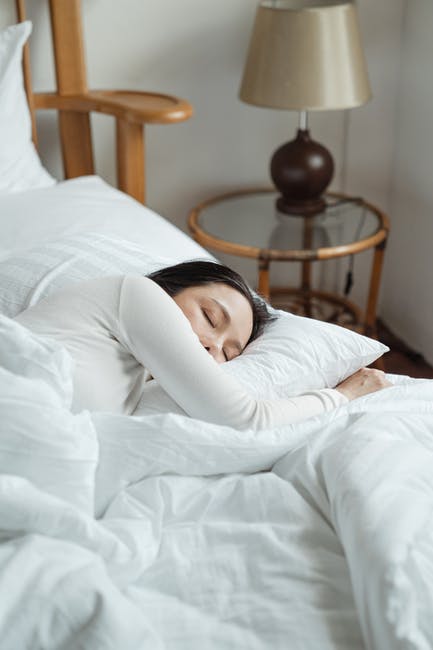
When you wake up in the morning, do you feel refreshed and ready to take on the world? Or do you feel groggy and lethargic?
If you’re like most Americans, there’s a good chance that you feel the latter. Studies show that 27% of Americans struggle with falling or staying asleep every night. Nearly 70% experience sleep problems at least once a week.
Many people don’t realize that getting a quality night’s sleep isn’t as difficult as it might seem. By following a few health tips and knowing what not to do before bed, you can easily control how you wake up feeling the next day.
Interested in learning more?
Read on to learn about ten activities that you’ll want to keep far away from your bedtime routine.
1. Eating Before Bed
Are you someone who enjoys late-night snacks before hitting the hay? That’s not uncommon, but it also isn’t necessarily good for your body. Eating before bed can make it more difficult to fall asleep.
When your body is trying to digest large amounts of food, your mind often struggles to relax. This can lead to tossing, turning, and, depending on the amount of food, general discomfort.
Try to put at least a two-hour gap between the time you finish your last meal of the day and the time you lay down for sleep. You’ll thank yourself later!
2. Going to Bed at Inconsistent Hours
Most people struggle with keeping a consistent sleep schedule. Work requires most of us to go to bed early, but a simple dinner with a friend can lead to drinks, and before you know it, it’s midnight.
Try your best to go to bed around the same time each night.
Our bodies have their own type of internal clock—the circadian rhythm. Going to bed at irregular times or too late repeatedly will throw that clock off. This makes it harder to both fall asleep and wake up.
3. Drinking Coffee Too Late in the Day
Most experts agree that coffee provides drinkers with different benefits. However, it also contains caffeine which, as any college student can tell you, makes it difficult to fall asleep.
If you’re someone who needs coffee to make it through the day, make sure you’re aware of when you consume it. Try your best not to drink it within five or six hours of when you go to bed.
The same goes for tea. Herbal teas might seem like ultra-healthy choices, but they can still affect your ability to fall asleep hours later.
4. Consuming Alcohol Before Bed
Alcohol may be a depressant, but that doesn’t mean that it makes getting a good night’s sleep easier. In fact, as anyone who enjoys a wild Friday night can tell you, you almost always feel groggy the morning after drinking—no matter how early you go to bed.
Remember that your body goes through different stages of sleep. It’s true that alcohol can help you fall asleep, but later on in the night, you’ll find yourself much more restless.
If you do plan on going out for some drinks, try to drink early enough in the night to give your body time to process the drinks before getting into bed. You’ll find yourself much more rested the next day if you do.
5. Staring at Your Phone or Computer
Whether it’s sending one final email or scrolling through Instagram one final time, most people aren’t truly ready for bed until after they stare at their phones for a half hour. Try your best to avoid doing that.
Besides making it difficult for your mind to drift off to sleep, the blue light from electronics can trick your brain into thinking that it’s daytime. This makes it even more difficult to fall asleep.
Try to put away all devices an hour before you get into bed. You can also look into purchasing blue light glasses or even fast acting sleep gummies to help mitigate the effects of the light.
6. Sleeping in an Environment That’s Too Hot or Cold
When you’re laying in bed, the little things are often what prevent you from falling asleep. One good example of that is room temperature.
The temperature of the room you’re in might be fine during the day, but it might be just enough to keep you from sleeping at night.
Most of the time, this means keeping the room at a temperature of 65 degrees Fahrenheit. Try to look for ways to set and maintain the temperature of the room somewhere around there.
7. Sleeping on an Uncomfortable Bed
When’s the last time you’ve fluffed your pillows, or even bought new ones? How about replaced your mattress or bed frame?
If you can’t remember the answer to any of those questions, it’s time to invest in a comfier bed. Sleeping on a creaky and uncomfortable bed won’t make falling asleep easier.
If you don’t have the budget to invest in a whole new bed, look into replacing parts of it. A new mattress pad can help tame an old mattress, while a soft comforter can help soothe anyone off to sleep.
Take Advantage of These Bedtime Routine Health Tips
Most people settle for average (or even subpar) sleep quality. However, the truth is you don’t need to do that.
Use the health tips mentioned in this guide to ensure that your bedtime routine is what it should be. By following the advice laid out, you’ll be well on your way to getting a refreshing night’s sleep each time your head touches the pillow.
Are you interested in learning more about what not to do before sleep? If so, make sure to check out the rest of our site for more great health-related articles.





